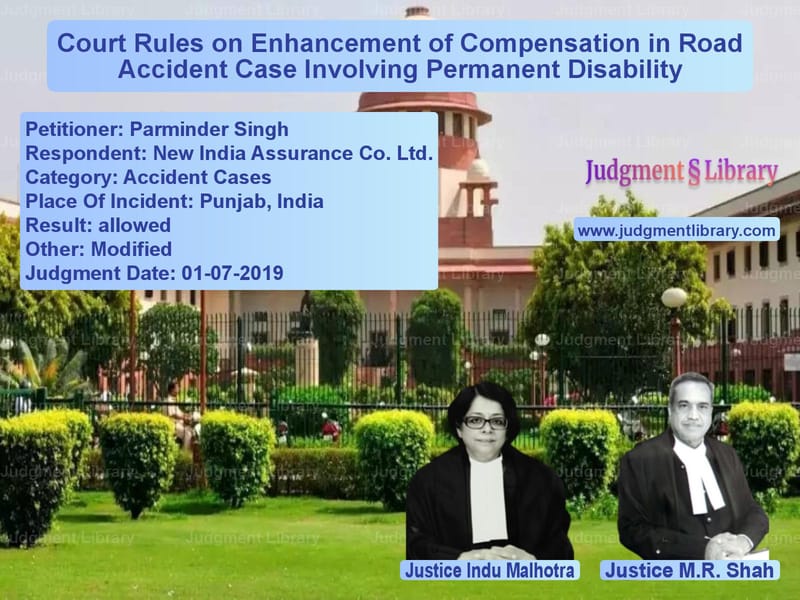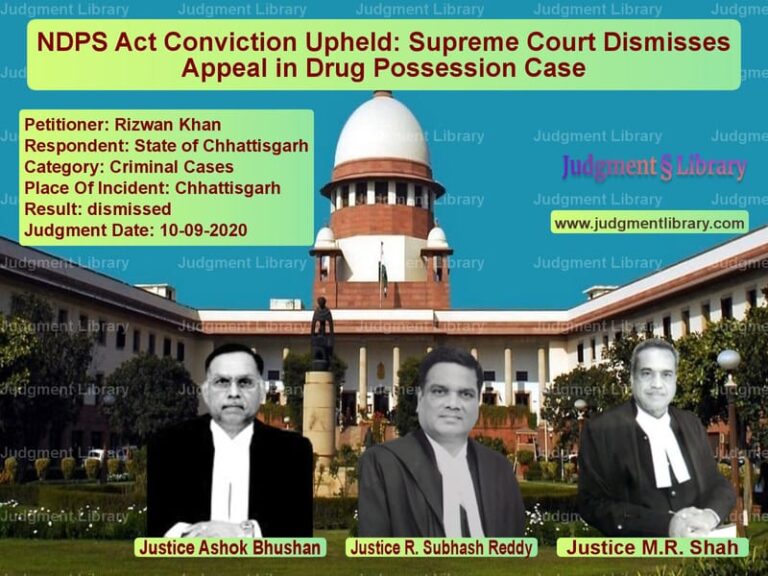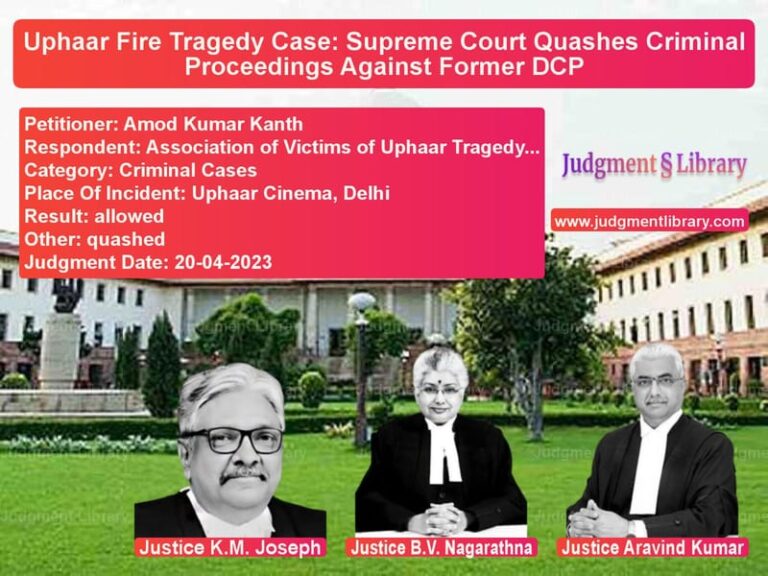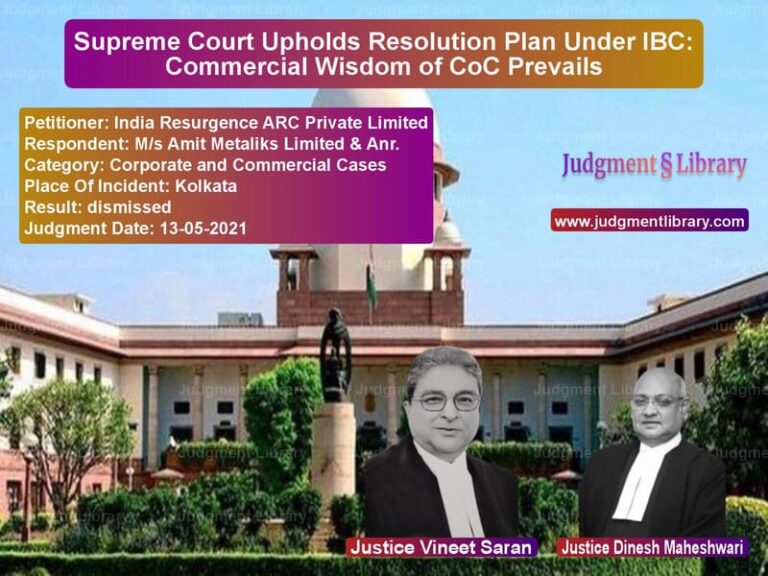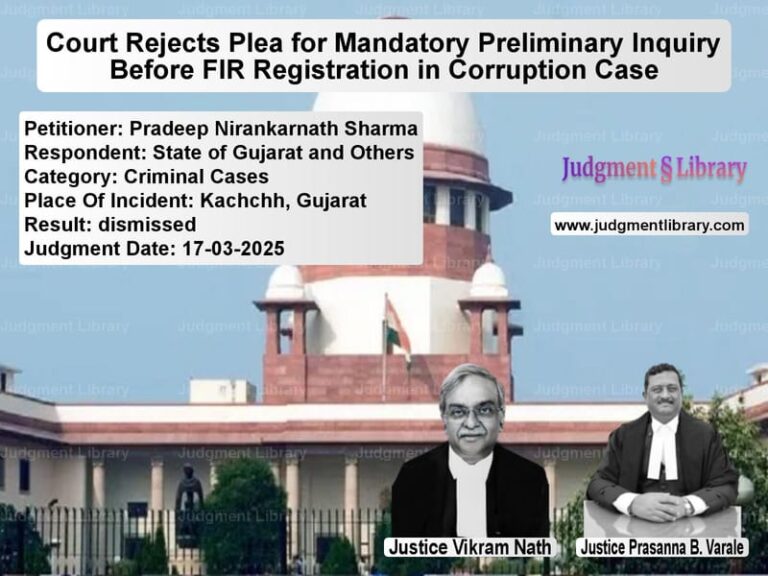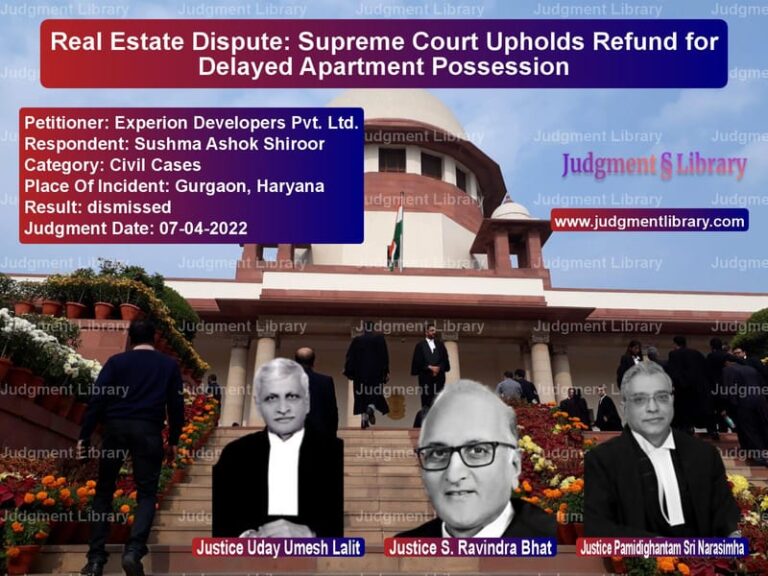Court Rules on Enhancement of Compensation in Road Accident Case Involving Permanent Disability
The case of Parminder Singh vs. New India Assurance Co. Ltd. & Ors. centers around a road accident that left the appellant, Parminder Singh, with permanent disabilities. The Supreme Court delivered a landmark judgment that not only upheld the compensation awarded by the Punjab and Haryana High Court but also enhanced it significantly based on the permanent nature of the injuries and the impact on the appellant’s life.
The appellant, who was driving a Hyundai Elantra car carrying a Punjab Cabinet Minister, was involved in a severe accident when two trucks collided with his car. As a result, the minister passed away, while the appellant sustained grievous injuries that led to permanent disability. The case revolves around the liability of the insurers, the extent of compensation, and whether the appellant’s claim for future medical expenses and assistance was adequately addressed.
Background of the Case
The key events leading to the dispute are as follows:
- The accident occurred on March 29, 2009, near Village Khanpur, when the appellant was driving a car with the Punjab Cabinet Minister inside. A truck rammed into the vehicle due to the negligent driving of another truck which was parked on the road.
- The accident resulted in grievous injuries to the appellant, including head trauma, jaw fractures, and partial paralysis (hemiplegia).
- The appellant was permanently disabled and had to undergo several surgeries, including a hemi-craniotomy.
- The appellant filed a claim for compensation before the Motor Accident Claims Tribunal (MACT), Panchkula. The MACT awarded Rs. 10,43,666 based on a notional income of Rs. 6,000 per month.
- The appellant appealed to the Punjab & Haryana High Court for enhancement of compensation.
- The High Court, in an interim order, directed the appellant to undergo a reassessment by a medical board, which determined that the appellant’s disability was 100% in terms of his earning capacity. The compensation was enhanced to Rs. 21,06,000, including future prospects at 50%.
- The appellant, however, filed a civil appeal, seeking further enhancement of the compensation to Rs. 1,75,61,000, citing the permanent nature of his disability.
Petitioner’s Arguments
The appellant, Parminder Singh, presented the following key arguments for the enhancement of compensation:
- The permanent disability rendered him incapable of working as a driver or engaging in manual labor or agriculture, which was his livelihood prior to the accident.
- The notional income considered by the MACT was Rs. 6,000 per month, but evidence submitted later proved that his actual income was Rs. 10,000 per month.
- The High Court rightly recognized his functional disability as 100%, and it should have resulted in a further increase in compensation.
- The appellant requires lifelong medical assistance, which was not adequately covered in the original compensation.
- The appellant’s future earning capacity was severely affected, and he is now fully dependent on his family for support.
Respondent’s Arguments
The respondent, the New India Assurance Co. Ltd., defended its position with the following counterarguments:
- The compensation awarded by the MACT and the enhancement by the High Court were sufficient, considering the appellant’s disability.
- The appellant’s income prior to the accident was not properly documented, and his notional income should be considered.
- The insurance company had already been absolved of liability by the MACT due to the unlicensed driving of the trucks involved.
- The insurance company had no further liability, and the award of compensation beyond the High Court’s decision was unjustified.
Supreme Court’s Observations
The Supreme Court bench, comprising Indu Malhotra and M.R. Shah, delivered the following key observations:
- The appellant’s disability was correctly assessed as 100% concerning his ability to earn a livelihood.
- The High Court had rightly awarded compensation for future prospects, but the total income calculation should reflect a higher base of Rs. 10,000 per month.
- The appellant’s inability to continue his profession as a driver and manual laborer justified the claim for a larger amount under loss of future earnings.
- Medical expenses and the cost of future care were essential components of the compensation and were inadequately addressed by both the MACT and the High Court.
- The Court referred to precedents, including Govind Yadav v. The New India Insurance Company Ltd. and K. Suresh v. New India Assurance Company Ltd., which emphasized that compensation should account for both physical injury and the loss of the ability to lead a normal life.
Critical Judgment Excerpt: “The appellant has suffered irreversible damage to his physical and emotional well-being. Given the permanent nature of his disability and the substantial impact on his future livelihood, it is necessary to provide him with adequate compensation that addresses both his medical needs and loss of future earnings.”
Final Decision
The Supreme Court ruled as follows:
- The appeal was allowed, and the compensation was enhanced to Rs. 32,40,000 for loss of future earnings.
- The Court further awarded Rs. 7,50,000 for medical expenses incurred due to surgeries and treatments.
- An additional Rs. 10,00,000 was granted for future medical expenses and attendant charges.
- The respondent insurance company was directed to pay the enhanced compensation within 12 weeks from the date of judgment, with the right to recover the amount from the offending truck owners.
Implications of the Judgment
This ruling has significant implications for personal injury and accident compensation cases:
- Reaffirms the principles of fair compensation for those with permanent disabilities.
- Emphasizes the need to account for both functional disability and loss of future earnings in compensation awards.
- Clarifies that future medical expenses and attendant care must be factored into the overall compensation package.
- Strengthens the position of accident victims, particularly those rendered permanently disabled, in securing appropriate compensation.
Legal Precedents and Framework
The ruling is consistent with previous decisions regarding compensation for permanent disabilities:
- Govind Yadav v. New India Insurance Company Ltd. (2011) – Established the principles for compensation based on loss of earning capacity.
- K. Suresh v. New India Assurance Company Ltd. (2012) – Clarified the calculation of compensation for permanent disability.
- Raj Kumar v. Ajay Kumar (2011) – Set guidelines for assessing the loss of earning capacity due to physical disability.
Conclusion
The Supreme Court’s decision in Parminder Singh vs. New India Assurance Co. Ltd. is a pivotal judgment that ensures fair and just compensation for individuals who suffer permanent disability due to road accidents. The Court’s decision not only increased the compensation but also emphasized the importance of providing for future medical needs and assistance for those who are no longer able to support themselves. This case sets a strong precedent for similar cases, ensuring that accident victims are compensated for their long-term needs and losses.
Petitioner Name: Parminder Singh.Respondent Name: New India Assurance Co. Ltd..Judgment By: Justice Indu Malhotra, Justice M.R. Shah.Place Of Incident: Punjab, India.Judgment Date: 01-07-2019.
Don’t miss out on the full details! Download the complete judgment in PDF format below and gain valuable insights instantly!
Download Judgment: Parminder Singh vs New India Assurance Supreme Court of India Judgment Dated 01-07-2019.pdf
Direct Downlaod Judgment: Direct downlaod this Judgment
See all petitions in Compensation Disputes
See all petitions in Motor Vehicle Act
See all petitions in Judgment by Indu Malhotra
See all petitions in Judgment by Mukeshkumar Rasikbhai Shah
See all petitions in allowed
See all petitions in Modified
See all petitions in supreme court of India judgments July 2019
See all petitions in 2019 judgments
See all posts in Accident Cases Category
See all allowed petitions in Accident Cases Category
See all Dismissed petitions in Accident Cases Category
See all partially allowed petitions in Accident Cases Category

